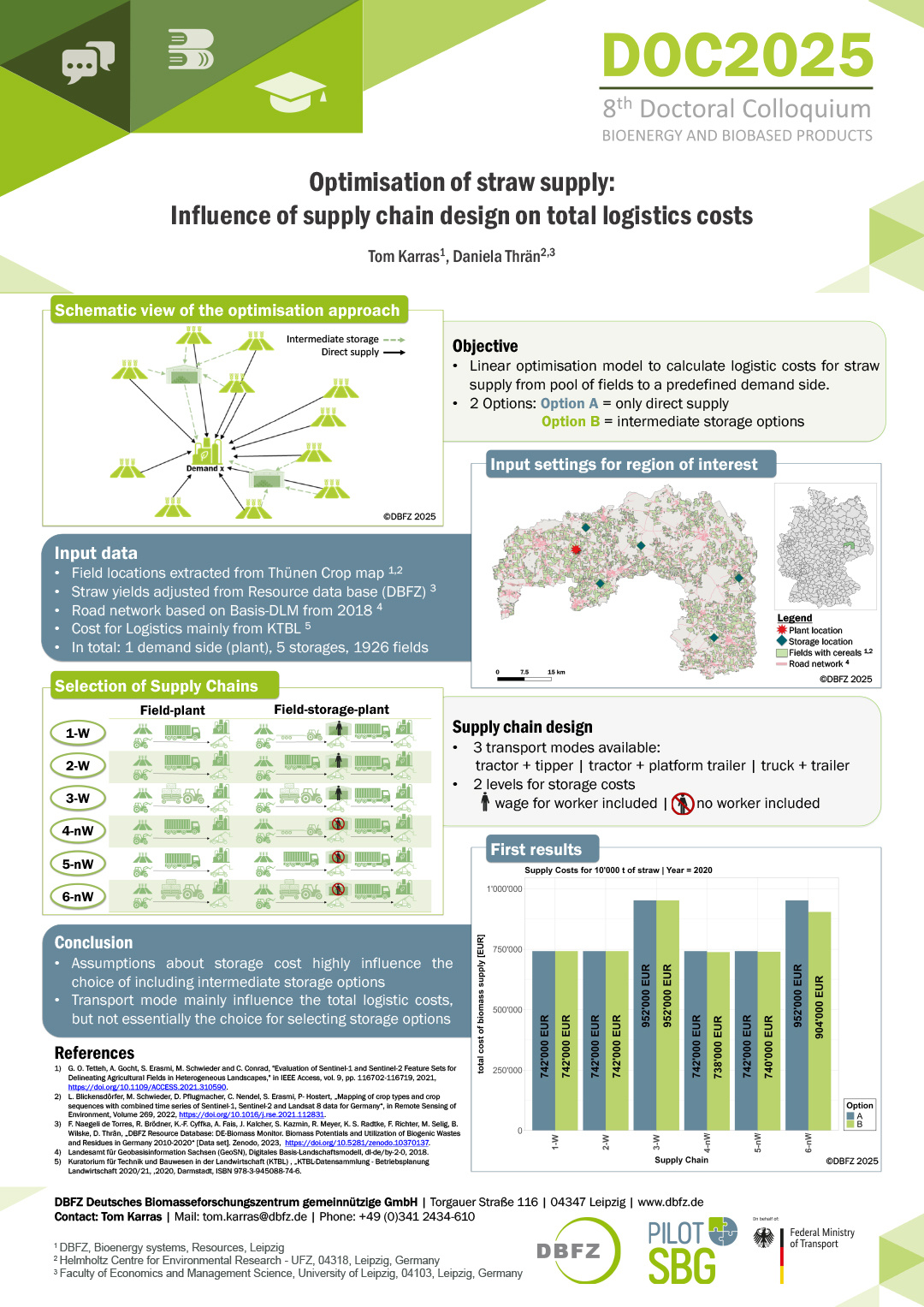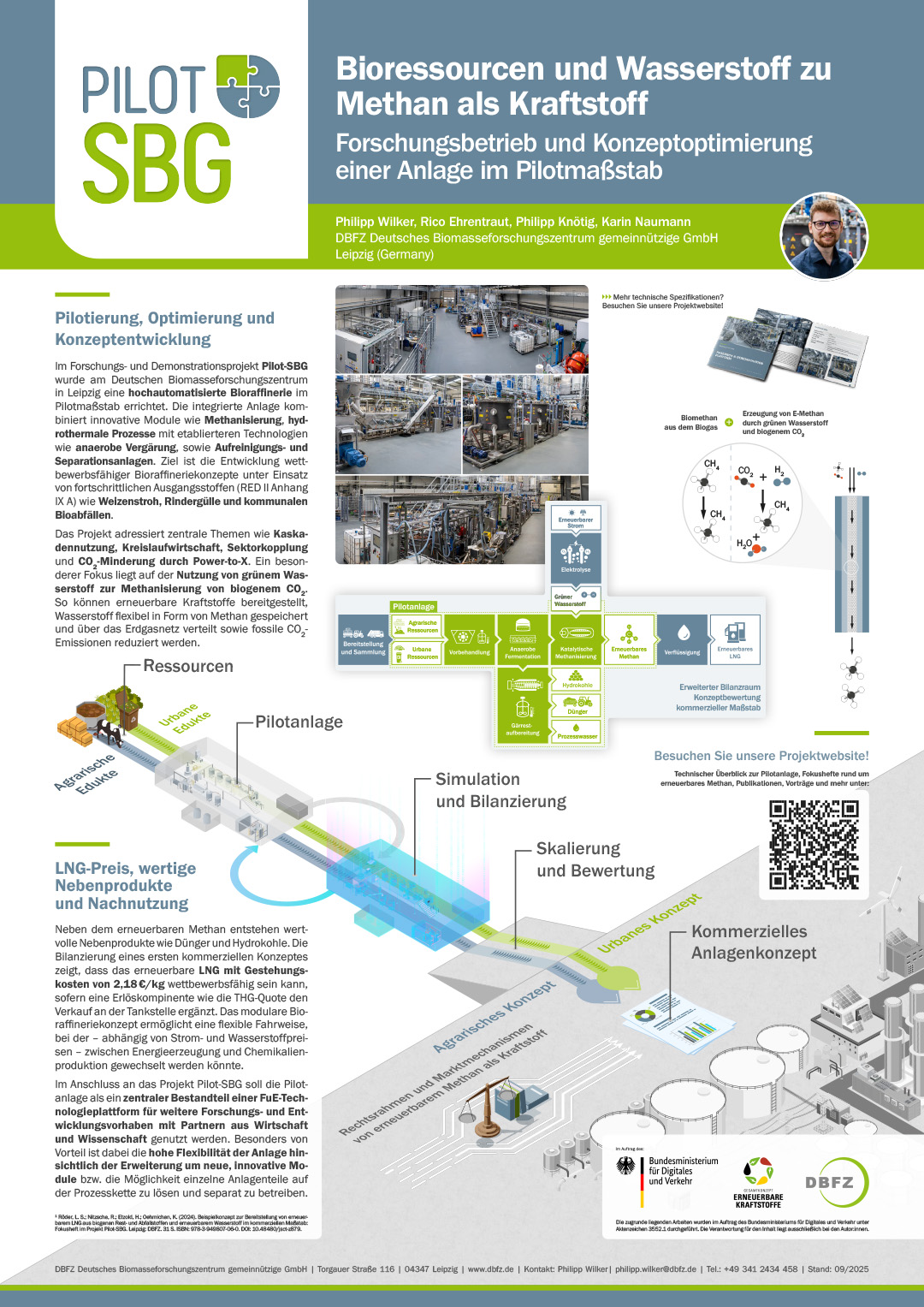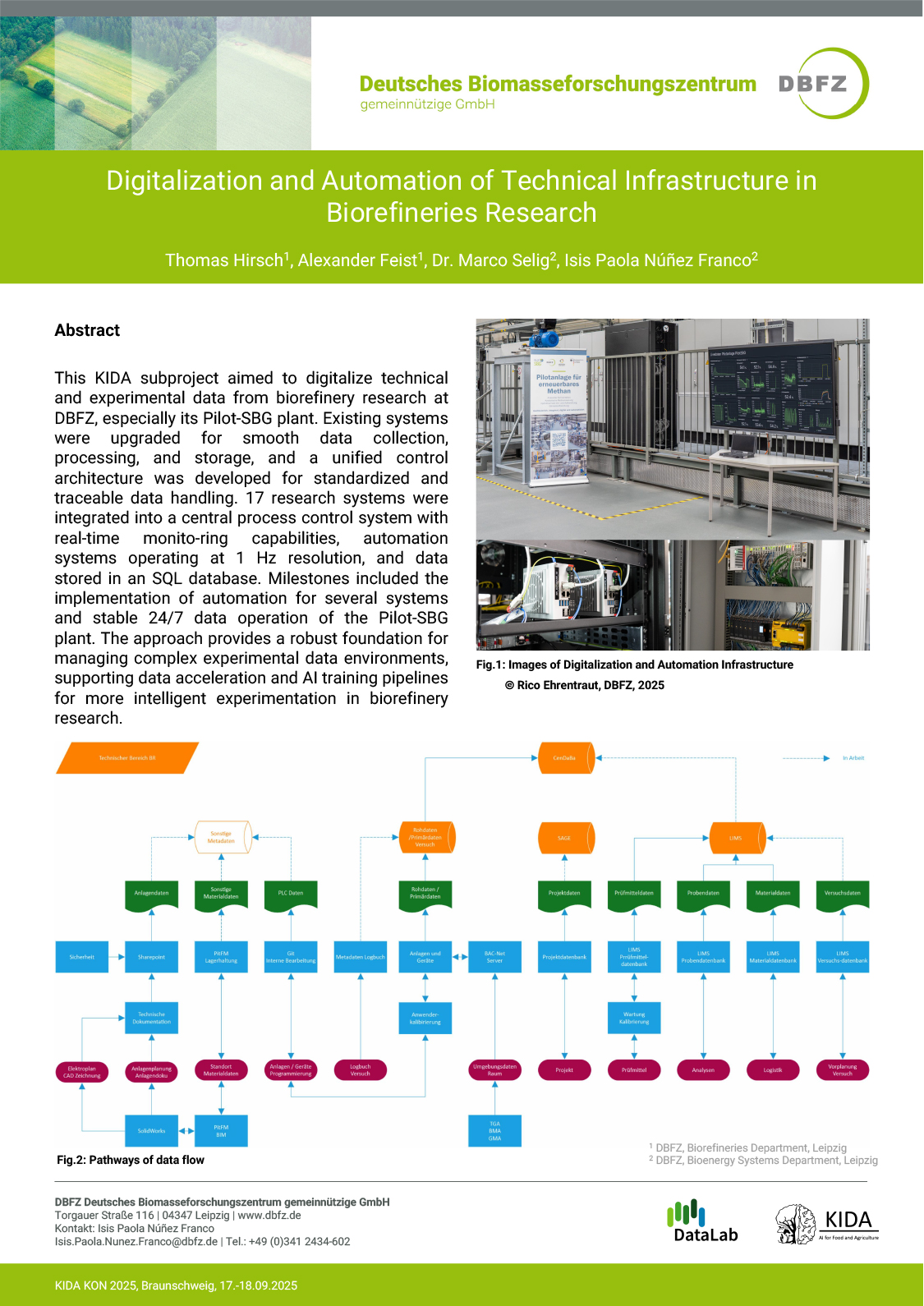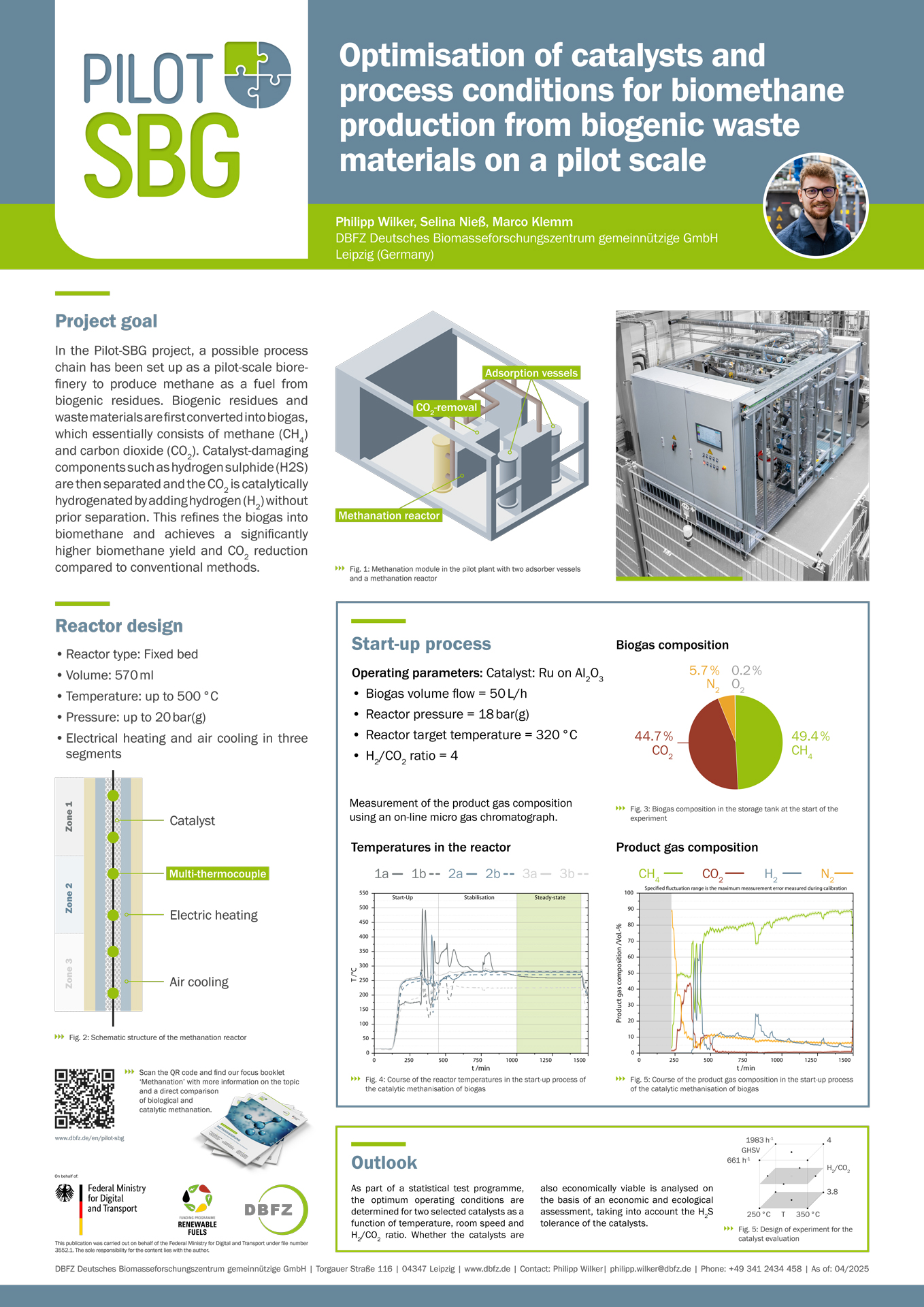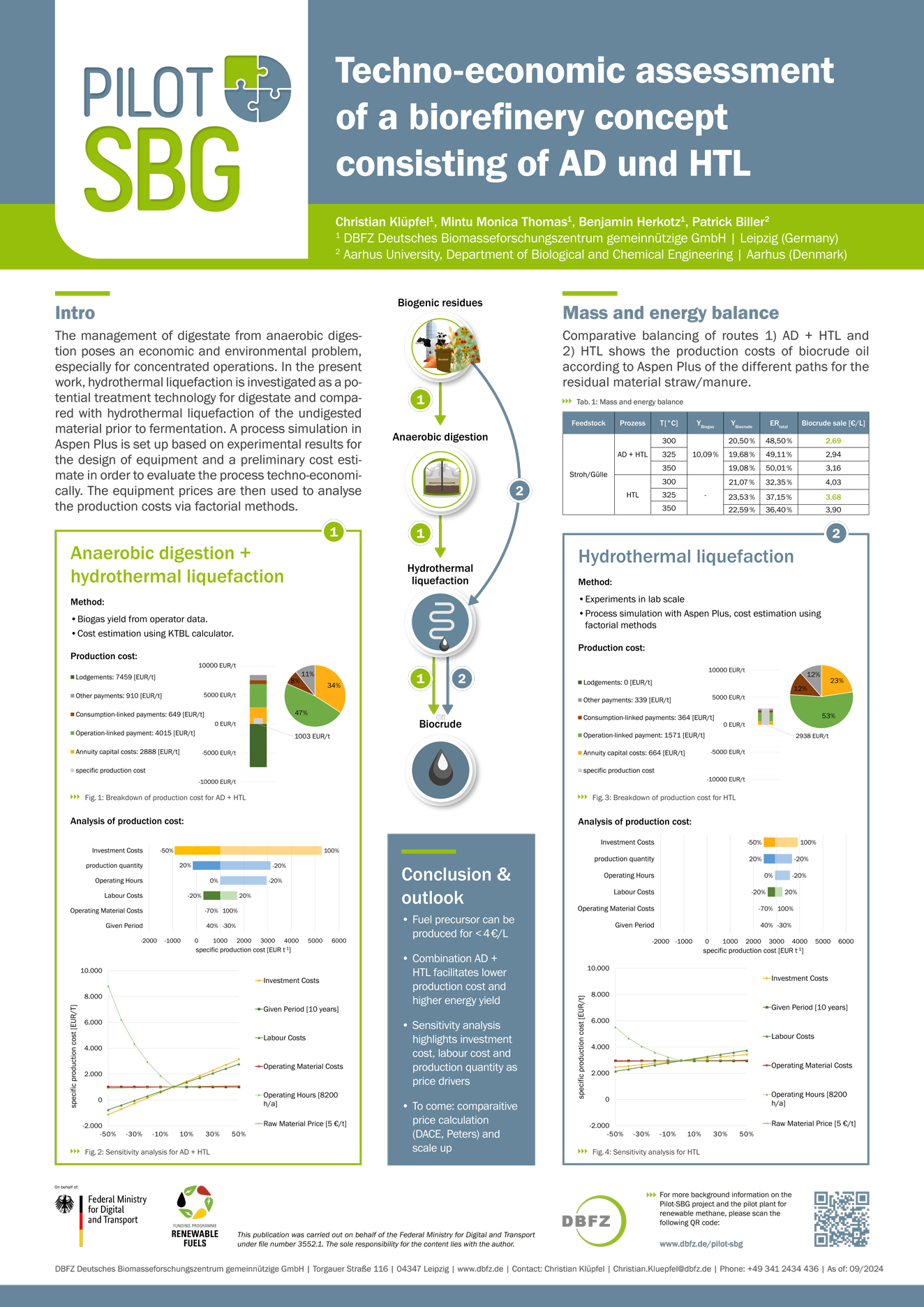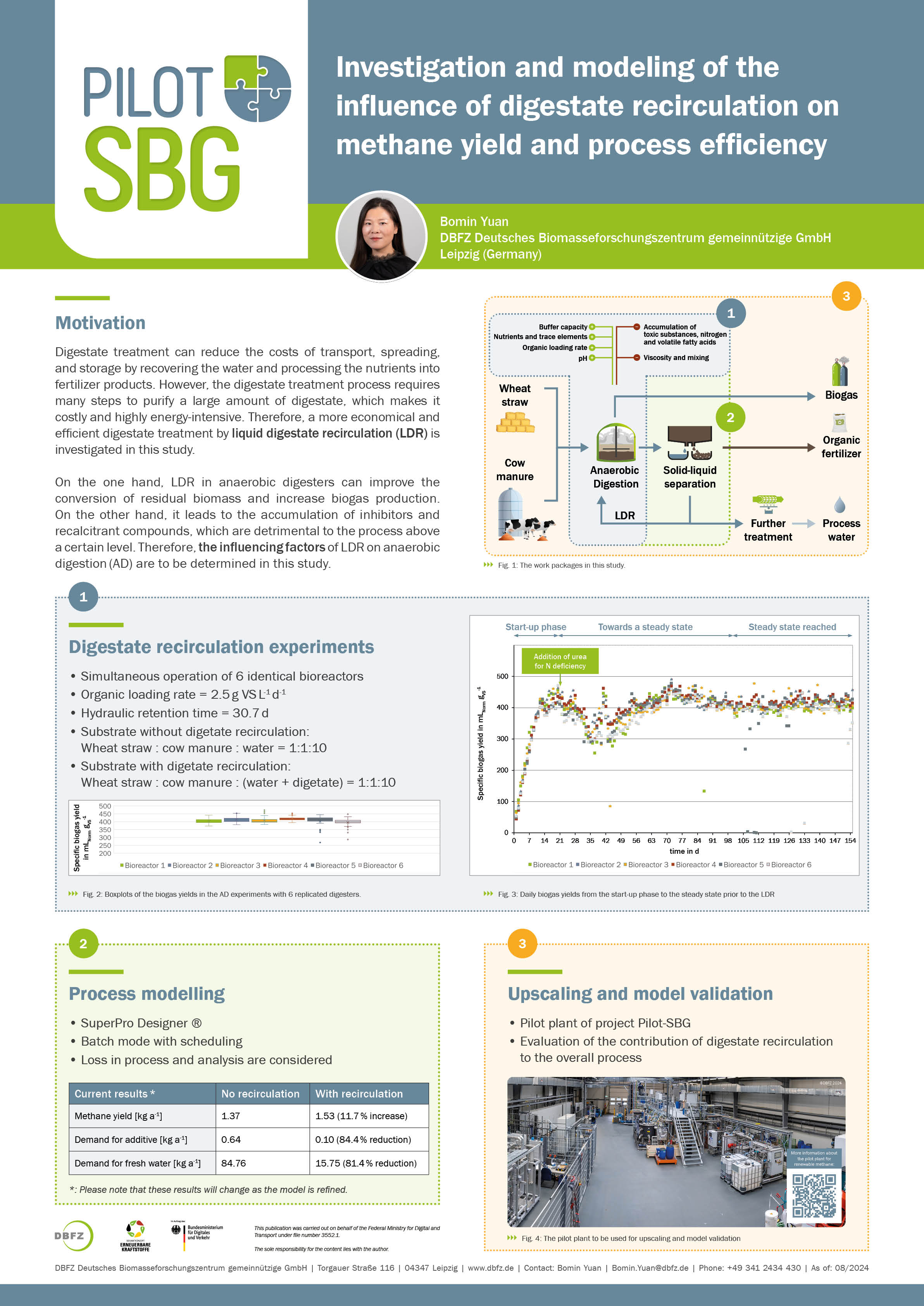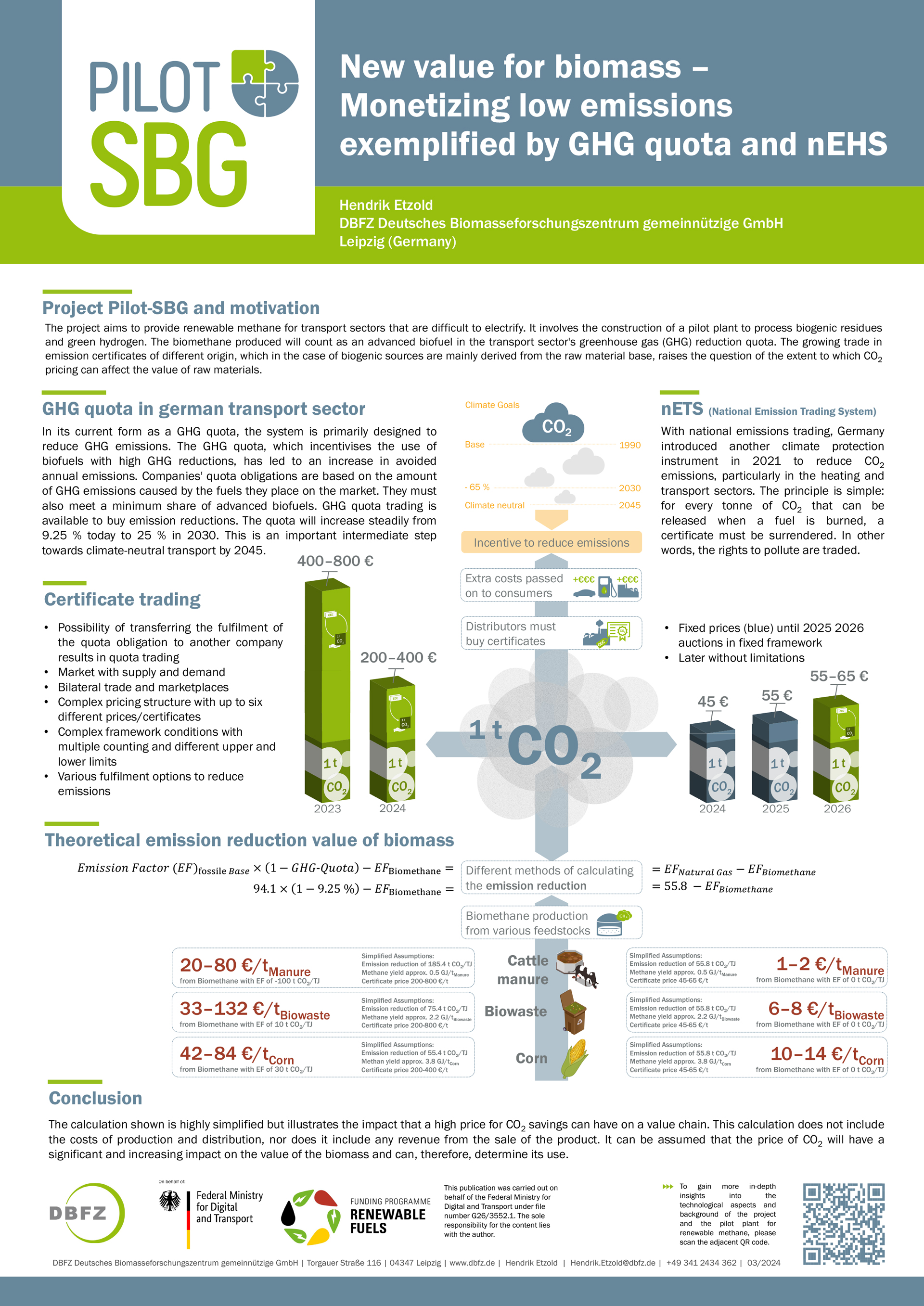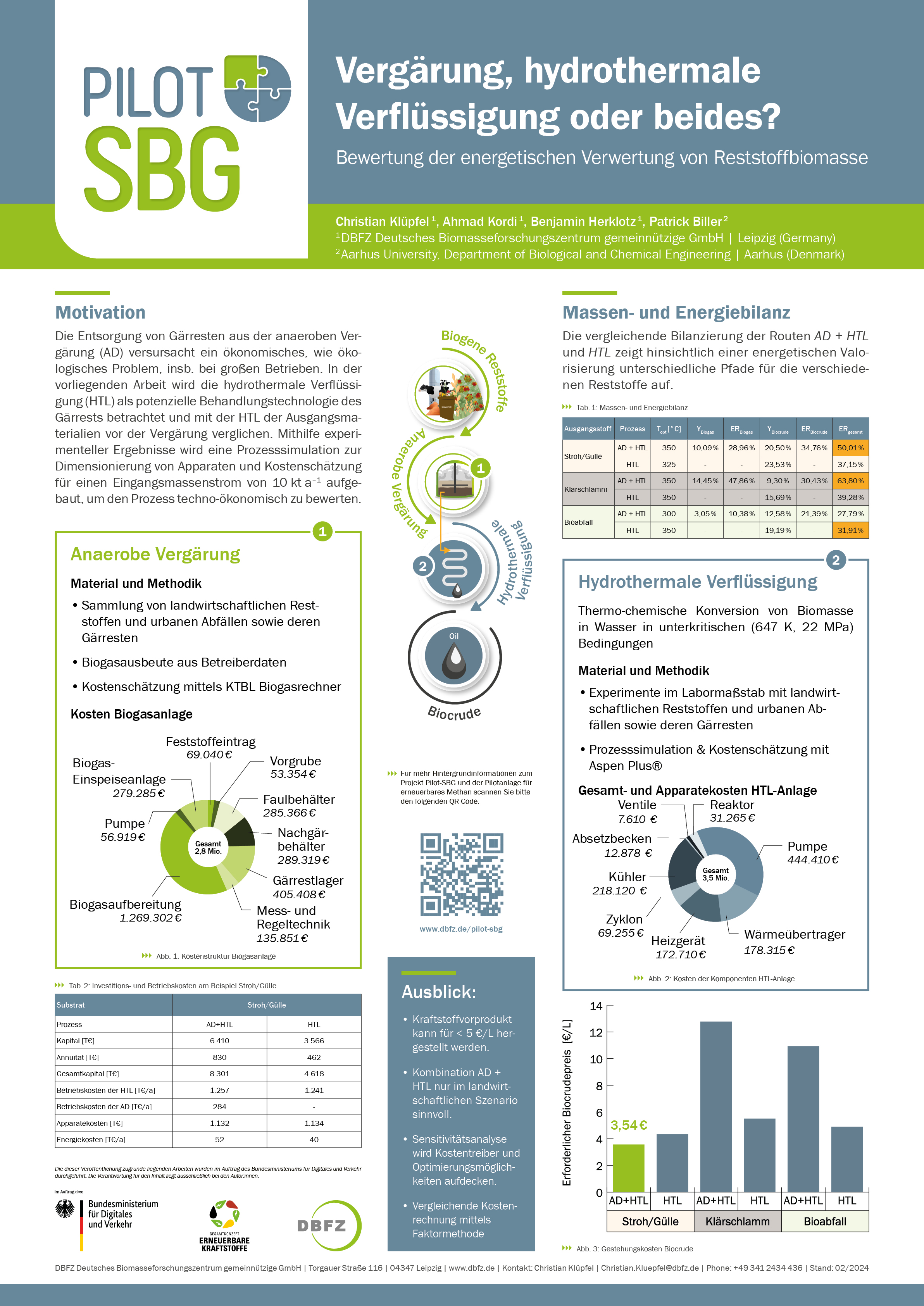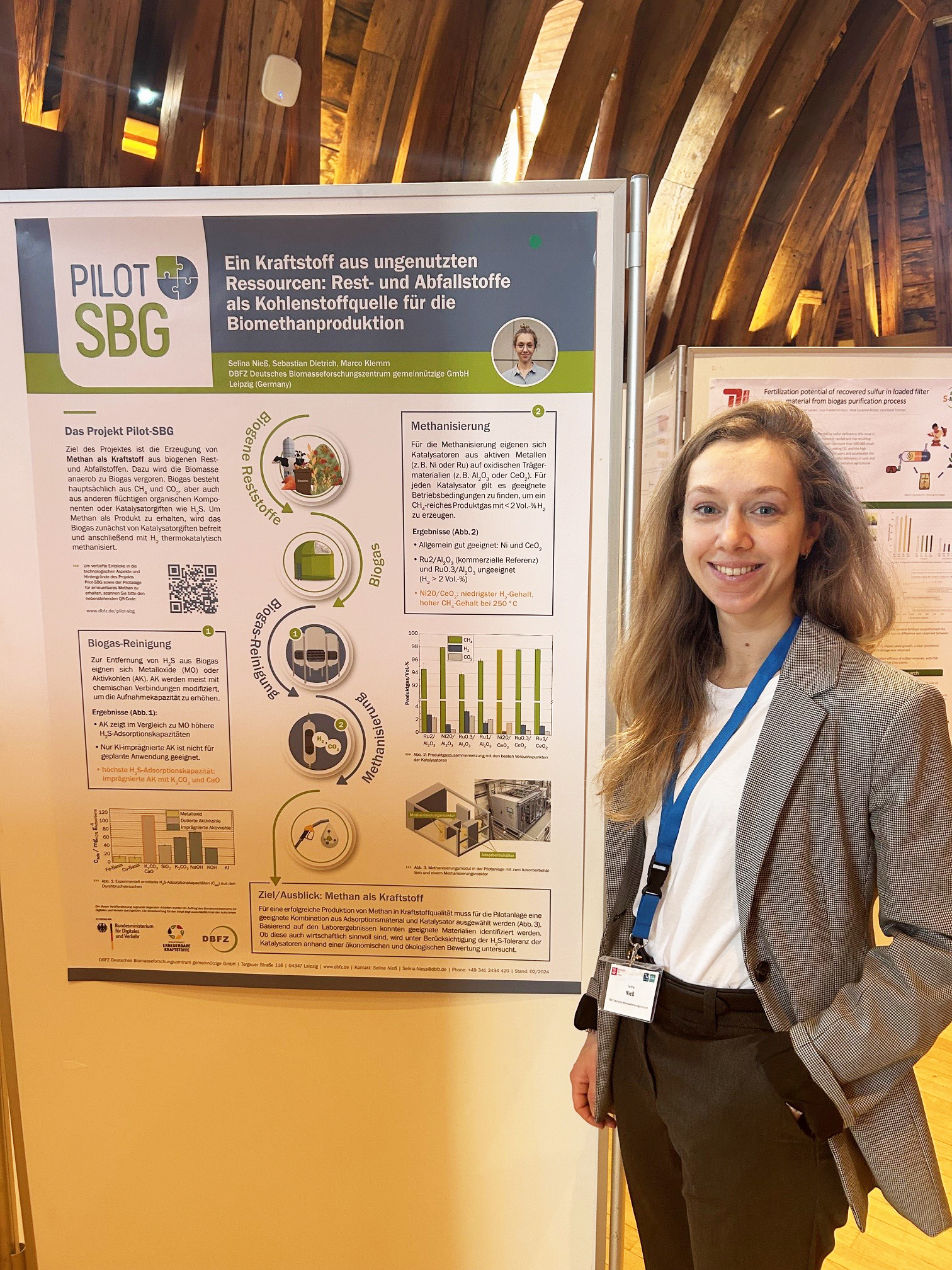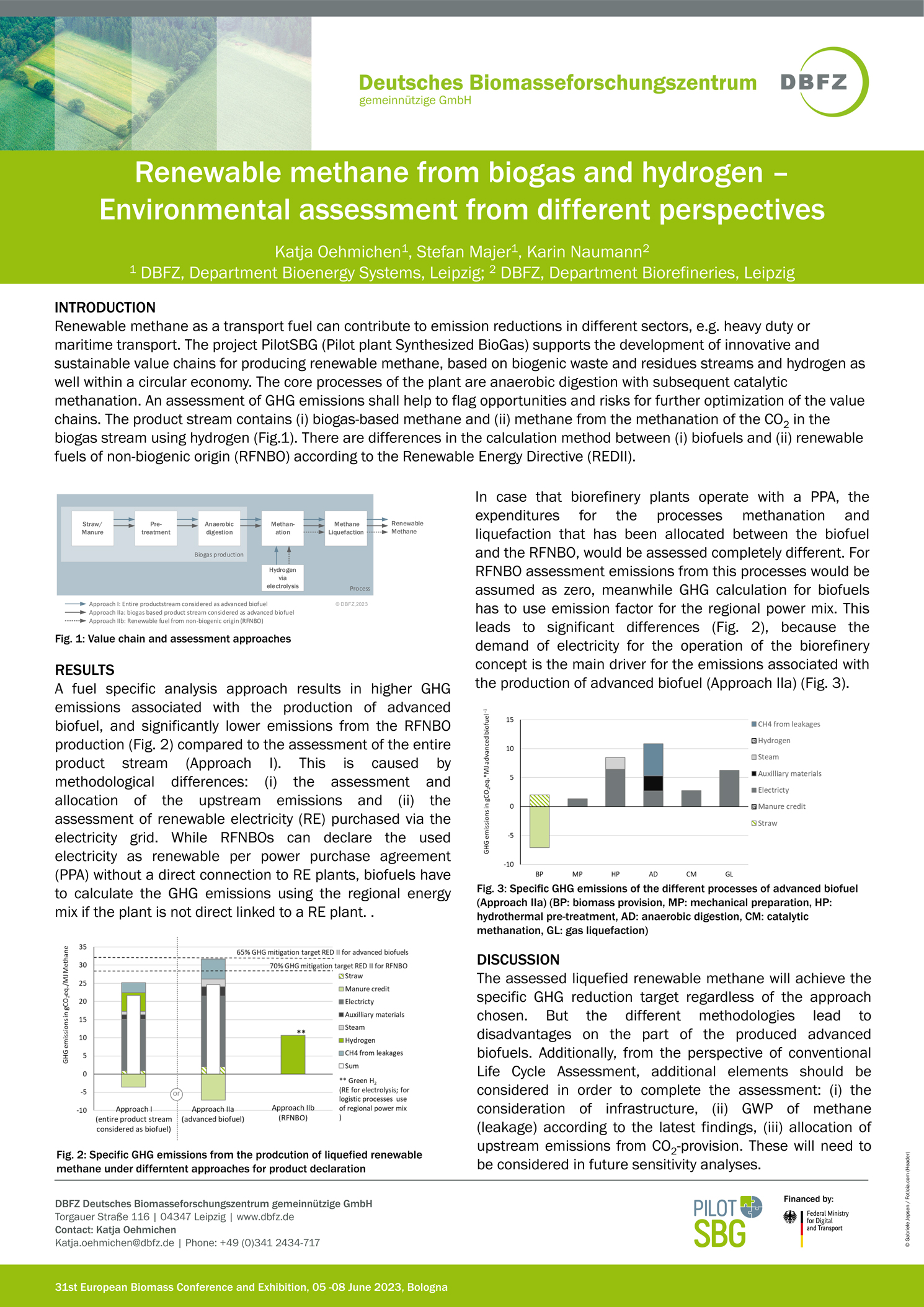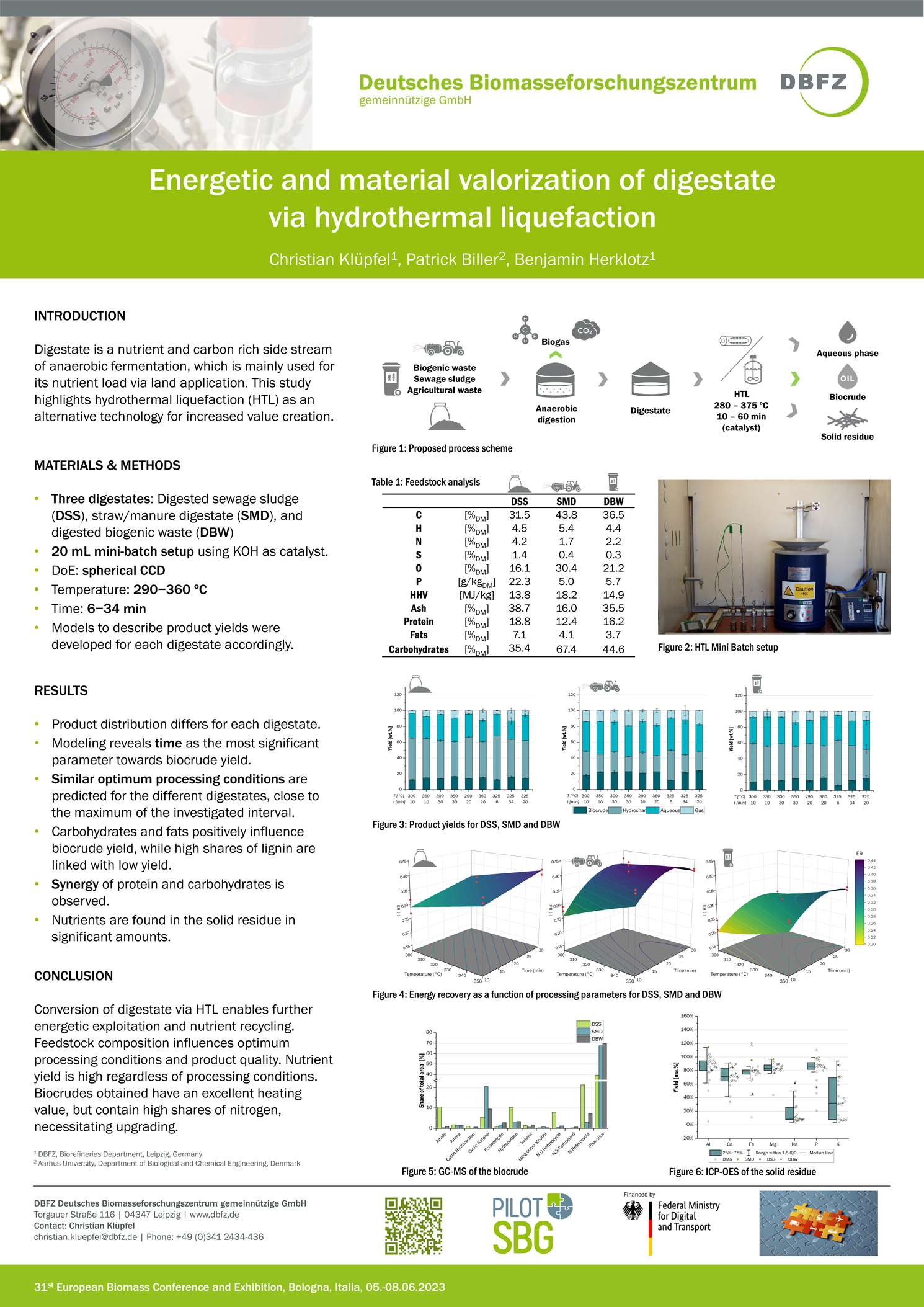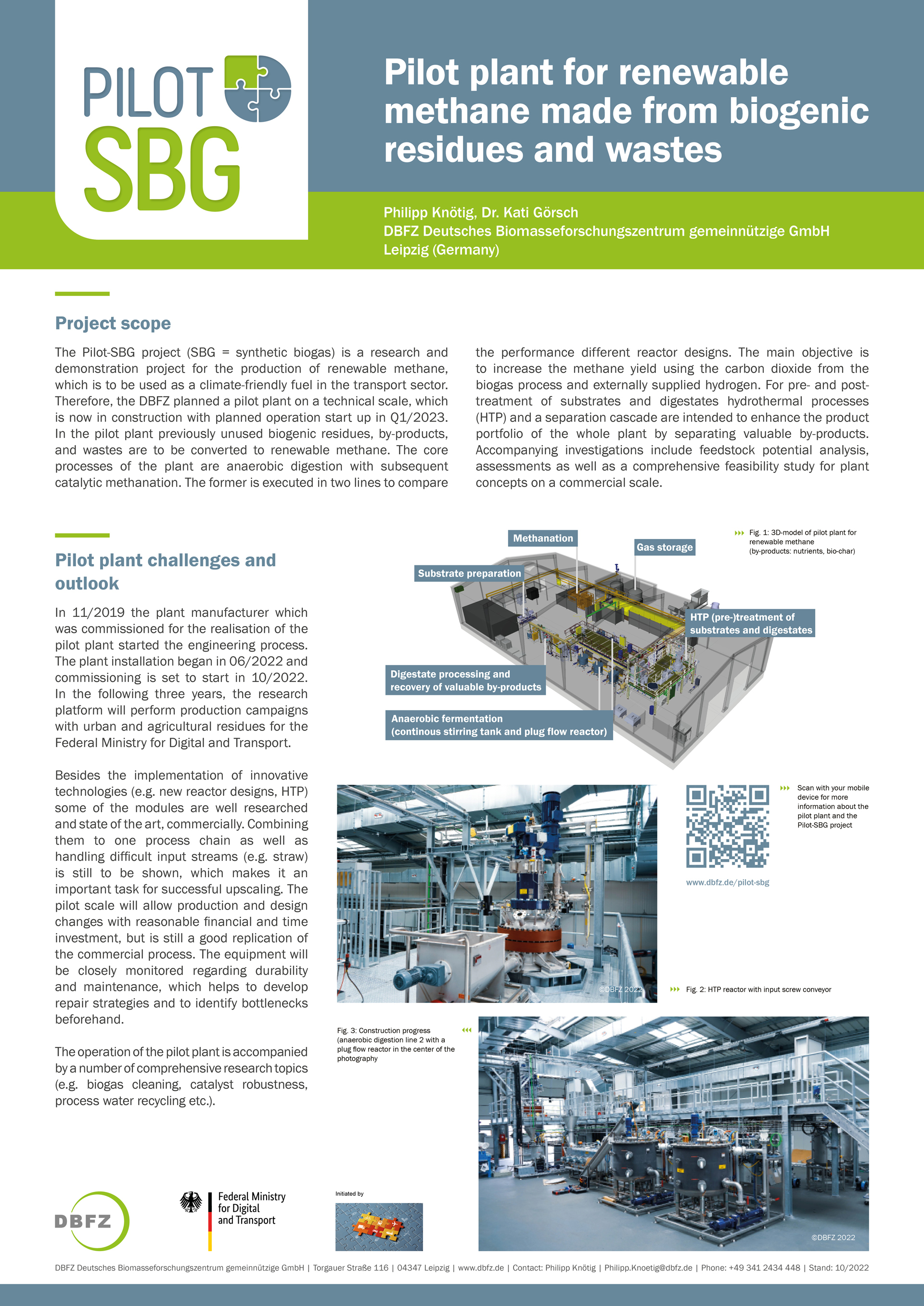Poster
As part of his PhD project, Tom Karras presents a poster that outlines an optimisation approach for minimising the cost of supplying straw to a defined plant location. As well as determining the minimum logistics costs, the model identifies the fields from which the straw is sourced. High-resolution crop maps from the Thünen Institute are used as input data to identify field locations. Transport distances are based on the road network and calculated using GIS analysis. The model can select between different supply chain designs for transporting the straw from the fields to the plant. In Option A, the straw can go straight from the field to the plant, whereas in Option B, it is also possible to bundle it in intermediate storage facilities. Initial model runs show that the choice of supply chain is driven by the underlying cost assumptions. In particular, the assumed storage costs play a decisive role in determining the economic viability of bundling straw quantities from the field in an intermediate storage facility. Further development of the model will include variations in straw potential at the field level, as well as the cost effects of digestate recirculation.
Download poster
Download poster
The poster by Philipp Wilker presents the Pilot-SBG research project, which involved the construction of a highly automated biorefinery on a pilot scale. The aim is to develop competitive biorefinery concepts for renewable fuels and CO2 reduction. The facility allows for flexible operation between energy production and chemical manufacturing, and also produces valuable by-products such as fertiliser and hydrochar.
Download poster [German version only]
Download poster [German version only]
This KIDA subproject digitalized technical and experimental data from DBFZ's Pilot-SBG biorefinery plant by integrating 17 research systems into a unified control architecture with real-time monitoring and automated data handling. The system now supports 24/7 operation, centralized SQL-based storage, and lays the groundwork for AI-driven experimentation.
Download poster
Download poster
The poster presents research work on methane production as a fuel from biogenic residues and waste materials on a pilot scale. Researchers Philipp Wilker, Selina Nieß and Marco Klemm from the DBFZ Deutsches Biomasseforschungszentrum gemeinnützige GmbH tested the methanation module to determine the optimum operating conditions for two selected catalysts. The results show an optimisation of the catalysts in terms of temperature, space velocity and H2/CO2 ratio as well as their economic and ecological viability.
Download poster
Download poster
The poster by Christian Klüpfel presents the results of a technical-economic assessment of a biorefinery concept that combines anaerobic digestion (AD) and hydrothermal liquefaction (HTL) for the treatment of sewage sludge and digestate before fermentation. Using process simulation in Aspen Plus based on experimental data, the study estimates production costs and shows that the combination of AD and HTL facilitates lower production cost and higher energy yield compared to hydrothermal liquefaction alone, with a fuel precursor that can be produced for less than 4 €/L. The sensitivity analysis highlights investment cost, labor cost, and production quantity as price drivers.
Download poster
Download poster
The poster of Bomin Yuan at DECHEMA FORUM 2024 and the 7th Doctoral Colloquium BIOENERGY AND BIOBASED PRODUCTS presented the study investigating the effects of liquid digestate recirculation (LDR) on methane yield and process efficiency in anaerobic digestion (AD). LDR aims to enhance biogas production while reducing costs associated with transport, storage and nutrient recovery. By operating six identical bioreactors simultaneously, the research compared the performance of AD with and without LDR. The results showed that LDR increased methane yield by 11.7 %, while significantly reducing additive use by 84.4 % and fresh water consumption by 81.4 %. Despite the benefits, the accumulation of harmful compounds remains a concern and requires further investigation. This study also includes process modelling and validation through pilot plant upscaling, which will be carried out in the next step.
Download poster
Download poster
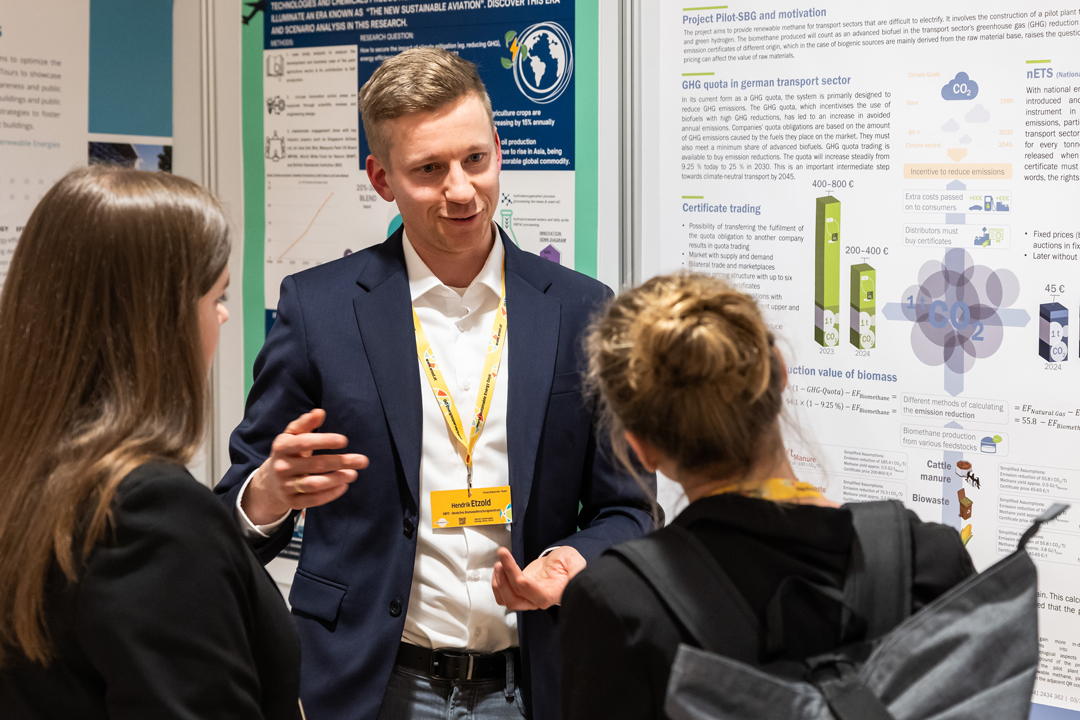
Hendrik Etzold presented a poster on World Sustainable Energy Days 2024 in Wels ein Poster zum Thema "New value for biomass – Monetizing low emissions exemplified by GHG quota and nEHS". In a theoretical approach, it describes the effect of high prices for greenhouse gas reduction in the GHG quota in transport on the value of biomass. As a conversion path, the fuel supply through biomethane from various resources was chosen. The CO2 price in the national emissions trading system was used as a comparison.
Download poster
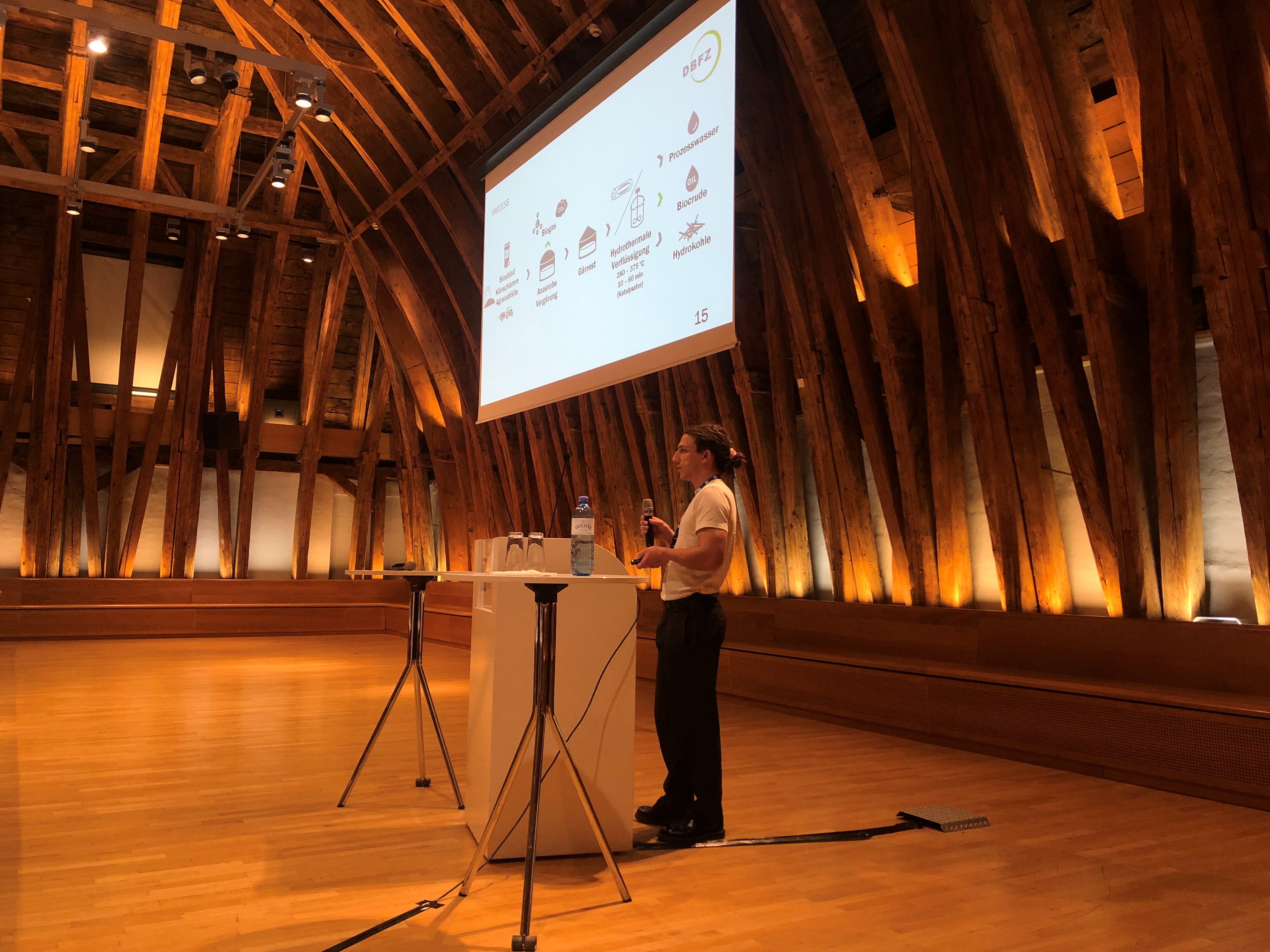
Christian Klüpfel's poster at the 13th DGAW Science Congress on Circular Economy and Resource Management presented the energetic utilization of residual biomass through anaerobic digestion, hydrothermal liquefaction or a combination of both processes. Experimental studies and process simulations are used to evaluate the technical and economic feasibility, comparing different scenarios and processes. The results show that hydrothermal liquefaction, especially in combination with anaerobic digestion in an agricultural context, is a promising option for the efficient use of biomass.
Download poster [German version only]
One focus of the Pilot-SBG research and demonstration project is the process of catalytic methanation for the complete conversion of biogas from biogenic resources to methane. Biogas purification with adsorbents on the one hand and the selection of suitable catalysts on the other hand play a decisive role. Selina Nieß's poster at the 13th DGAW Science Congress "Circular and Resource Economy" at the TU Vienna presented the laboratory results supporting the selection of adsorbents and catalysts for the project. In addition to the technical requirements, economic and environmental aspects are also taken into account in the selection of suitable operating materials for the pilot plant in order to ensure sustainable and economically viable production.
Download poster [German version only]
Download poster [German version only]
Renewable methane as a transport fuel can contribute to emission reductions in different sectors, e.g. heavy duty or maritime transport. The project PilotSBG (Pilot plant Synthesized BioGas) supports the development of innovative and sustainable value chains for producing renewable methane, based on biogenic waste and residues streams and hydrogen as well within a circular economy. The core processes of the plant are anaerobic digestion with subsequent catalytic methanation. An assessment of GHG emissions shall help to flag opportunities and risks for further optimization of the value chains. The product stream contains (i) biogas-based methane and (ii) methane from the methanation of the CO2 in the biogas stream using hydrogen (Fig.1). There are differences in the calculation method between (i) biofuels and (ii) renewable fuels of non-biogenic origin (RFNBO) according to the Renewable Energy Directive (REDII).
Autor:innen: Katja Oehmichen, Stefan Majer, Karin Naumann
Poster herunterladen
Autor:innen: Katja Oehmichen, Stefan Majer, Karin Naumann
Poster herunterladen
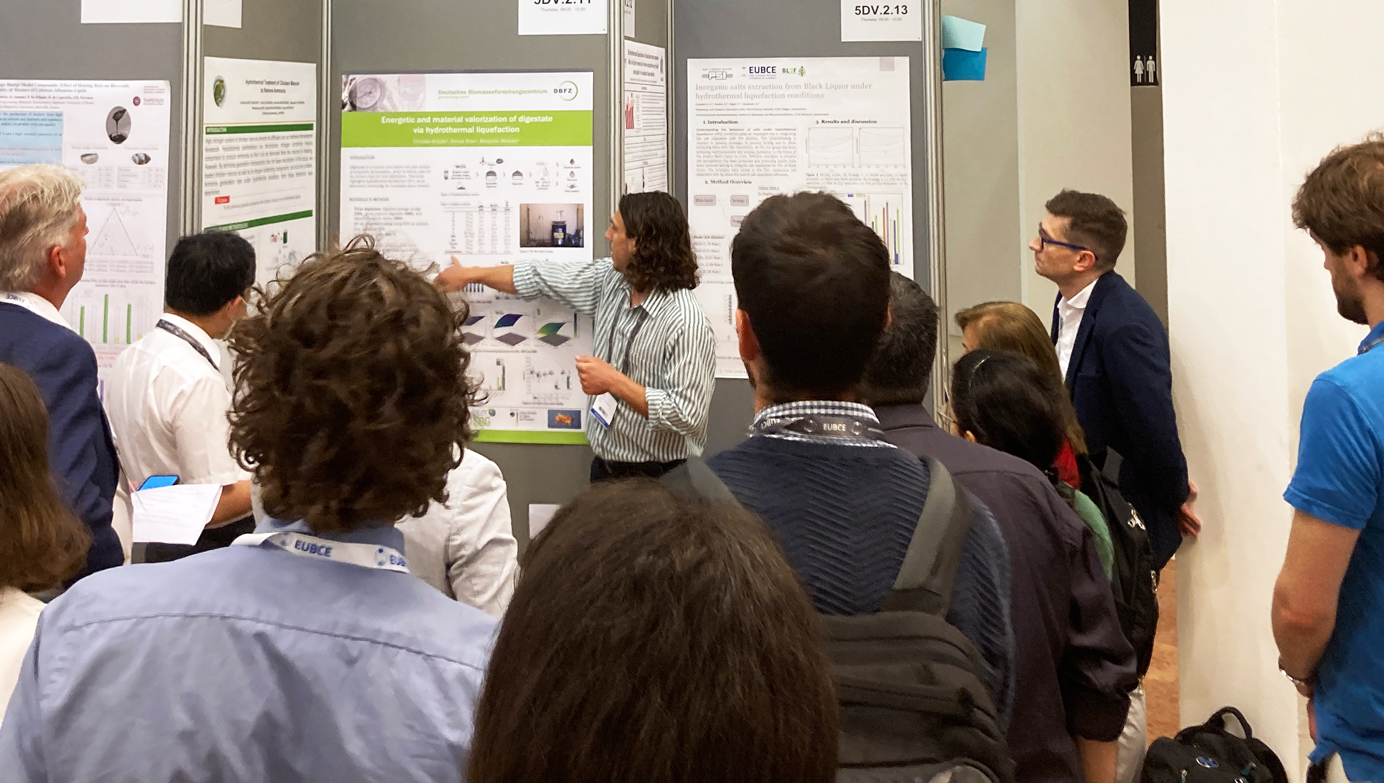
Hydrothermal liquefaction is investigated as a potential treatment technology for digestate. Three digestates from different scenarios are assessed based on their biochemical composition. Response surface methodology is used to highlight the influence of temperature, reaction time and content of protein, fat, carbohydrates and lignin on product yield. The fate of nutrients is determined via ICP-OES. GC-MS analysis of the biocrude oil reveals differences in molecular composition.
Autor:innen: Christian Klüpfel, Patrick Biller, Benjamin Herklotz
Poster herunterladen
The Pilot-SBG project (SBG = synthetic biogas) is a research and demonstration project for the production of renewable methane, which is to be used as a climate-friendly fuel in the transport sector. Therefore, the DBFZ planned a pilot plant on a technical scale, which is now in construction with planned operation start up in Q1/2023. In the pilot plant previously unused biogenic residues, by-products, and wastes are to be converted to renewable methane. The core processes of the plant are anaerobic digestion with subsequent catalytic methanation. The former is executed in two lines to compare the performance different reactor designs. The main objective is
to increase the methane yield using the carbon dioxide from the biogas process and externally supplied hydrogen.
Autor:innen: Philipp Knötig, Dr. Kati Görsch
Poster herunterladen
Autor:innen: Philipp Knötig, Dr. Kati Görsch
Poster herunterladen
